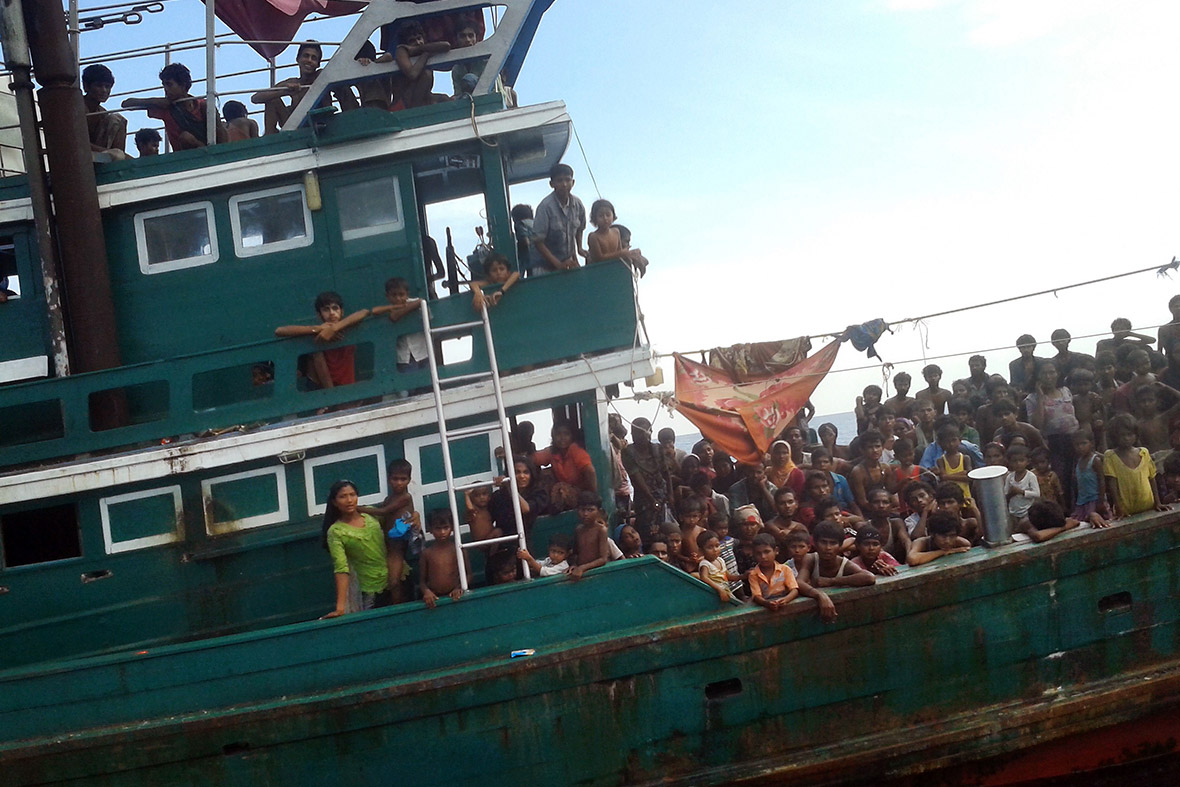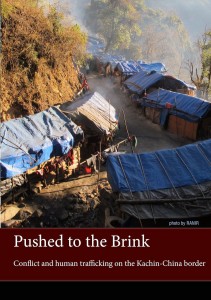Posts Tagged ‘Trafficking’ (22 found)
Human Rights at the Bottom of the Andaman Sea
 Earlier this week, two boats containing 600 refugees from Burma – mainly Muslim Rohingya – were turned away from the shores of Malaysia, having fled oppression under the Burma Government. They had been at sea for over two months and faced severe dehydration, starvation, and sickness. According to the International Office for Migration, there may be up to 8,000 still stranded at sea, many of whom will perish unless the international community provides urgent and substantive support. The scale of the exodus from Burma is alarming; according to the UN, this year alone more than 25,000 refugees have left Burma and Bangladesh for the shores of Thailand, Indonesia and Malaysia.
Earlier this week, two boats containing 600 refugees from Burma – mainly Muslim Rohingya – were turned away from the shores of Malaysia, having fled oppression under the Burma Government. They had been at sea for over two months and faced severe dehydration, starvation, and sickness. According to the International Office for Migration, there may be up to 8,000 still stranded at sea, many of whom will perish unless the international community provides urgent and substantive support. The scale of the exodus from Burma is alarming; according to the UN, this year alone more than 25,000 refugees have left Burma and Bangladesh for the shores of Thailand, Indonesia and Malaysia.
Many have been identified as Rohingya, Burma’s most persecuted religious minority population. For decades, the Rohingya have been systematically denied citizenship by their oppressive, military-backed government and subjected to repressive and discriminatory legislation, widespread and systematic human rights abuses, and violence that Human Rights Watch has classified as ethnic cleansing. Since 2012, hundreds have died and more than 140,000 have been displaced from their homes and villages. At the very least, the Burma authorities have been criminally negligent as regards the Rohingya; in many cases they were reportedly complicit in the violence. The Burma Government has shown no willingness to even investigate the violence, let alone prosecute those responsible.
• • •Southeast Asia: End Rohingya Boat Pushbacks
(Bangkok, May 14, 2015) – Thailand, Malaysia, and Indonesia should end their pushbacks of boats with Rohingya and Bangladeshi migrants and asylum seekers, and instead bring them ashore and provide desperately needed aid, Human Rights Watch said today […]
• • •Thailand, Malaysia, Indonesia: Coordinate Sea Rescues, Protect Asylum Seekers and Trafficking Survivors
(BANGKOK)—Thailand, Malaysia, and Indonesia should immediately coordinate search and rescue operations for Rohingya asylum seekers and possible survivors of trafficking from Myanmar and Bangladesh who are stranded at sea, Fortify Rights said today […]
• • •ASEAN Parliamentarians: Horrific Discoveries In Southern Thailand Further Demonstrate The Need For Regional Action
JAKARTA, 8 May 2015 — The horrific discovery of dozens of bodies of trafficking victims in southern Thailand represents yet another disturbing outcome of a collective lack of leadership on the part of regional governments to address the pervasive problem of human trafficking and the unfolding tragedy for Rohingya Muslims, said ASEAN Parliamentarians for Human Rights (APHR) this week […]
• • •Statement on Consultation Organized by Border-based Civil Society Organisations with the Nationwide Ceasefire Coordination Team (NCCT)
On November 22-23, 2014, 42 representatives of 25 border-based civil society organisations (CSOs), working on education, health, media, migrant workers’ rights, refugees, the environment, women’s issues and human rights, held a consultation meeting with the NCCT. This was the first such meeting with the NCCT held formally by a broad grouping of border-based CSOs. […]
• • •Secret Camps Holding Rohingya Refugees Must Be Closed Immediately
On International Migrants Day the Mekong Migration Network Calls for Urgent Action To Protect Asylum Seekers
The Mekong Migration Network (MMN) strongly condemns the abusive treatment of the Rohingya in Myanmar and in Thailand. Members of MMN who represent civil society groups working on labour, women and migration issues in all of the countries of the Mekong subregion, are shocked by the treatment of the Rohingya people […]
• • •Trafficking in Persons Report 2013: Burma
Burma is a source country for men, women, and children subjected to forced labor, and for women and children subjected to sex trafficking in other countries. Many Burmese men, women, and children who migrate for work to Thailand, Malaysia, Indonesia, Singapore, the United States, China, Bangladesh, India, South Korea, and Qatar are subjected to conditions of forced labor or sex trafficking in these countries […]
• • •Pushed to the Brink: Conflict and Human Trafficking on the Kachin-China Border
 On the surface, Burma seems to be strengthening its fight against human trafficking. Burma’s long-held position in the lowest ranking of international trafficking efforts finally inched upwards a rank as a result of several policy reforms and new programs. An anti-trafficking hotline opened, as did several anti-trafficking task force offices. Anti-trafficking stickers and posters are plastered in areas across the country, and American singer Jason Mraz recently teamed with MTV to hold a massive free concert in Rangoon to raise awareness about human trafficking
On the surface, Burma seems to be strengthening its fight against human trafficking. Burma’s long-held position in the lowest ranking of international trafficking efforts finally inched upwards a rank as a result of several policy reforms and new programs. An anti-trafficking hotline opened, as did several anti-trafficking task force offices. Anti-trafficking stickers and posters are plastered in areas across the country, and American singer Jason Mraz recently teamed with MTV to hold a massive free concert in Rangoon to raise awareness about human trafficking
The Kachin Women’s Association – Thailand’s earlier reports Driven Away (2005) and Eastward Bound (2008) had documented the growing incidence of trafficking along the China-Burma border. This new report looks at the impacts of the renewed conflict on this problem […]
Burma’s War Against Kachin Creating ‘Perfect Storm’ for Human Trafficking
A new report by Kachin women exposes how the Burmese government’s war against the Kachin has greatly increased the risk of human trafficking along the China-Burma border […]
• • •Trafficking in Persons Report 2011
Burma is a source country for men, women, and children who are subjected to forced labor and for women and children subjected to sex trafficking in other countries. Burmese children are forced to labor as hawkers and beggars in Thailand. Many Burmese men, women, and children who migrate for work in Thailand, Malaysia, China, Bangladesh, India, and South Korea are subjected to conditions of forced labor or sex trafficking in these countries […]
• • •








 All posts
All posts